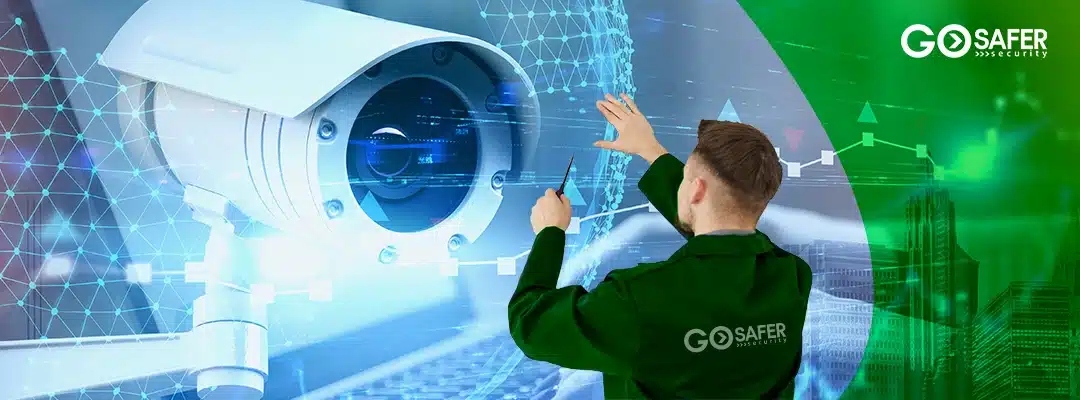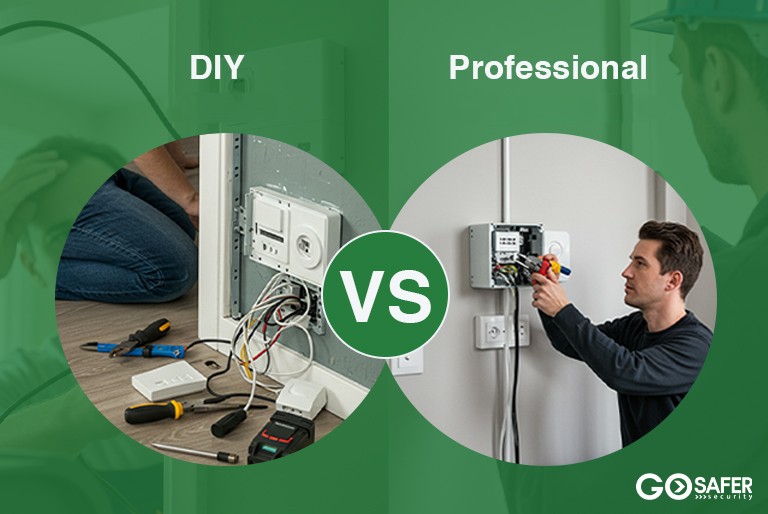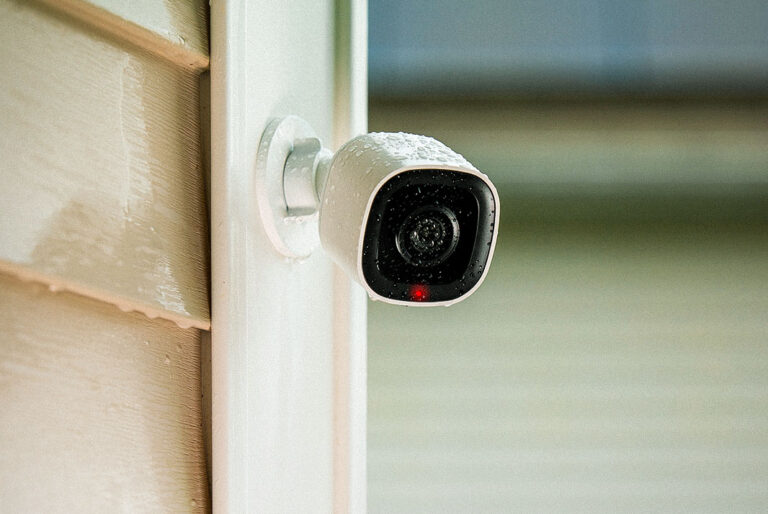With the rise of home security cameras, many homeowners find themselves concerned about privacy. If your neighbor’s security camera is pointing towards your property, you might feel uncomfortable or even violated. The good news is that there are legal and ethical ways to protect your privacy without escalating tensions.
In this guide, we’ll explore how to block your neighbor’s security camera while staying within the law, offering practical solutions that ensure your privacy remains intact.
Table of Contents
ToggleWhy Do You Need to Block Your Neighbor’s Security Camera?
Before jumping into the methods to block or reduce the impact of a neighbor’s security camera, it’s important to understand the reasons behind your need for privacy.
Security cameras are often installed for safety, but sometimes they may invade your personal space. If your neighbor’s camera is aimed at sensitive areas such as your yard, windows, or even your front door, you may feel uncomfortable. It’s important to act before it becomes a larger issue.
Additionally, security cameras may capture private moments, unintentionally infringing on your right to privacy. If this is the case, there are several methods to block or obscure their view of your property.
Understanding Your Rights and Local Laws
Before taking any action, it’s essential to understand local privacy laws regarding security cameras. While homeowners have the right to install cameras for security purposes, they cannot legally record areas where individuals have a reasonable expectation of privacy, such as inside your home or fenced backyard.
Steps to Determine if Your Privacy is Being Violated
✅ Identify the exact direction of the camera.
✅ Check if it captures areas beyond their property.
✅ Determine whether there’s an actual invasion of privacy.
📌 Pro Tip: If you’re installing your own security cameras, follow these best positioning practices to avoid legal conflicts. Learn more in this guide: How to Install and Position Your Surveillance Cameras.
Practical Ways to Block Your Neighbor’s Security Camera
Here are some effective and non-confrontational ways to protect your privacy:
1. Use Natural Barriers for Privacy
A simple and effective way to block your neighbor’s camera is by using physical barriers such as trees, plants, or fences. Planting tall shrubs or installing privacy screens can obstruct the line of sight of a security camera, blocking its view of your property without causing a confrontation.
In some cases, the height of the fence or screen may be regulated by local laws, so it’s important to check with your municipality before proceeding with this option.
Most effective ways to block a security camera without conflict is to create natural barriers such as:
- Tall fences or privacy screens
- Thick hedges or trees
- Outdoor curtains or shades
2. Install Anti-Surveillance Solutions
If physical barriers aren’t an option, consider technology-based solutions such as:
✅ Infrared lights to interfere with night vision.
✅ Security window film that obscures views inside your home.
✅ Smart lighting systems that create glare on the camera’s lens.
Installing a surveillance system that covers all your angles is a proactive approach. When positioning your cameras, make sure you follow the proper guidelines to ensure they are pointing only at your property. For detailed advice on how to install and position your surveillance cameras, check out this guide on camera placement.
🚀 Related Read: If your neighbor’s alarm system frequently goes off, check out this article on alarm-triggered warning sounds and video camera settings.
Want to enhance your home privacy? Contact our experts for a Free Quote!
3. Speak to Your Neighbor and Find a Compromise
Sometimes, a simple conversation can solve the issue. Politely approach your neighbor and express your concerns. Ask if they can adjust the camera angle or install privacy masking features.
4. Adjust Your Own Security Measures
If you’re concerned about counter-surveillance, ensure your wireless security system is working correctly to detect any potential privacy breaches.
🔍 Related Resource: Learn how to troubleshoot common issues with wireless security systems to ensure your home security remains optimal.
5. Know How to Handle Hacked or Misused Security Cameras
Unfortunately, some security cameras can be hacked, posing an even greater privacy risk. If you suspect a breach, take action immediately by:
- Updating your home network security
- Using encrypted connections
- Consulting cybersecurity professionals
📌 Pro Tip: Discover how to protect smart security systems from hacking in this guide: Can Smart Security Systems Be Hacked? Tips to Stay Protected.
Other Methods to Protect Your Privacy
Use Privacy Film or Window Tinting
If the camera is aimed at your windows, installing privacy film or window tinting can significantly reduce the visibility into your home. This method is ideal for areas where physical barriers are not an option.
By applying a frosted or mirrored window film, you can prevent the camera from seeing inside your property while still allowing natural light to enter. This is one of the simplest and most effective solutions.
Position Reflective Objects to Disrupt Camera Angles
Some people opt to use reflective surfaces, such as mirrors or aluminum foil, to disrupt the camera’s line of sight. By strategically placing these objects in areas that align with the camera’s view, you can confuse or block the camera’s ability to record clear footage.
Can You Legally Block or Disable a Neighbor’s Security Camera?
It’s crucial to understand the legal boundaries when it comes to blocking or tampering with a neighbor’s security system. In most cases, intentionally blocking or damaging a security camera could be considered illegal. Tampering with someone else’s surveillance equipment can result in criminal charges, so always make sure to approach the situation tactfully and legally.
If you’re uncomfortable with the angle or position of the camera, consider having a conversation with your neighbor. They may not even be aware that their camera is infringing on your privacy.
Troubleshooting Camera Interference
Sometimes, interference with your neighbor’s security camera is inevitable. If you’re dealing with more than one camera or a particularly high-tech system, you might encounter challenges in preventing them from capturing your property.
If your neighbor’s camera uses infrared (IR) or night vision, it may still be able to see through some physical barriers. In these cases, you might need to consider alternative methods, such as adjusting your own camera’s settings or adding additional security measures to safeguard your space.
For those with wireless systems, you might want to look into troubleshooting common issues with wireless security systems, which could include camera malfunctions, signal interference, or connection failures that could impact your ability to monitor or block unwanted surveillance.
What to Do If the Camera Is Still an Issue?
If your neighbor refuses to adjust their camera angle or position, and it’s causing significant distress, you may want to consult a lawyer. Sometimes a formal letter or a discussion with legal backing can encourage your neighbor to take action without escalating tensions.
If the situation worsens, you may also want to explore further steps, such as reporting the issue to your local authorities, particularly if the camera is violating any privacy laws.
Final Thoughts
Blocking your neighbor’s security camera without violating any laws requires a strategic and respectful approach. Whether through natural barriers, tech solutions, or open communication, you can protect your privacy while maintaining a peaceful neighborhood environment.
🚀 Take Action Today: Need expert guidance on home security and privacy solutions? Contact us for a free consultation!







